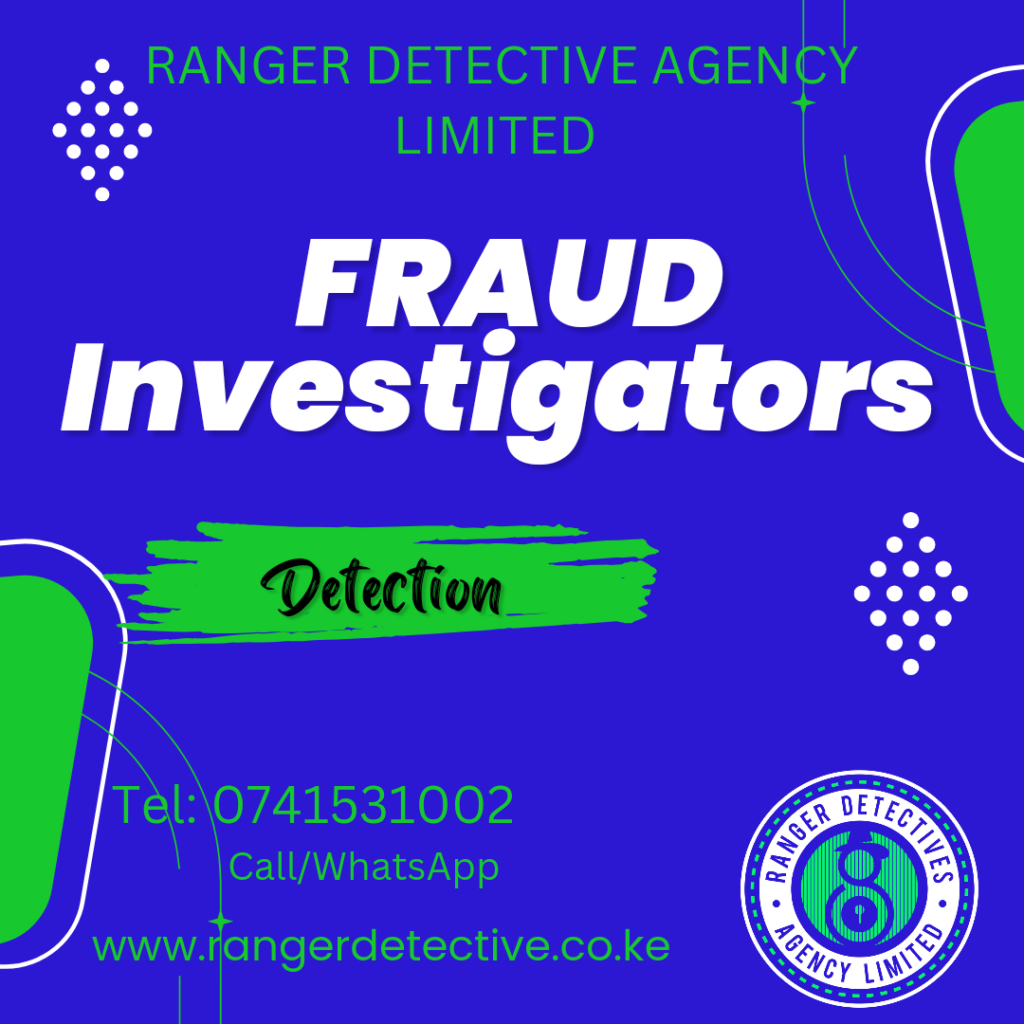Fraud Investigation

Why Your Business or Organization Needs a Fraud Investigator
Fraud investigators play a critical role in safeguarding businesses, organizations, and corporations against fraudulent activities. Their expertise helps uncover, prevent, and address fraud, ensuring the smooth functioning and financial health of the organization.
Roles and Responsibilities of Fraud Investigators
- Surveillance and Intelligence Gathering
Fraud investigators, like surveillance experts, gather information and intelligence to uncover fraudulent activities.
Acting as undercover operatives, they work discreetly within an organization to identify potential risks and gather tips to expose misconduct.
- Monitoring Employee and Organizational Conduct
They monitor employee behavior to detect misconduct, fraudulent activities, mistreatment, theft, or breaches in customer relationships.
Undercover investigators may collect specific information by working closely with staff, ensuring accountability and compliance.
- Support for Whistleblowing Efforts
While fraud investigators can act as whistleblowers, it is generally not recommended. Instead, they collaborate with the organization to emphasize and enhance whistleblower protection.
- Strengthening Internal Controls
Fraud investigators assist auditors in creating robust internal controls that mitigate risks, protect assets, and enhance operational efficiency.
- Specialized Roles
Fraud Examiners focus on proactive measures to prevent fraud before it occurs, identifying potential vulnerabilities and implementing preventive strategies.
Fraud Detectives investigate incidents of fraud that have already taken place, identifying perpetrators and working to recover losses where possible.
Key Functions of Fraud Investigators
Fraud investigators contribute to:
- Prevention: Creating awareness and training staff on fraud prevention measures, much like road signs warning drivers of potential hazards.
- Protection: Establishing barriers to deter fraudsters, akin to airbags providing protection during accidents.
- Detection: Identifying fraudulent activities through thorough investigations.
- Deterrence: Discouraging potential fraud by creating a strong internal culture of accountability and transparency.
- Remediation: Addressing fraud incidents, investigating perpetrators, and helping the organization recover from financial and reputational damage.
Why It Matters
Fraud is a significant risk to any organization, and a dedicated fraud investigator serves as your first line of defense. By leveraging their skills, you can ensure the integrity of your operations, protect your assets, and maintain trust with stakeholders.
Many businesses and organizations lack dedicated fraud investigators, often only seeking their services after an audit uncovers significant fraudulent activities that result in substantial losses capable of harming the business.
We understand that economic challenges may make it difficult for many organizations to hire a full-time investigator. That’s why we offer the flexibility of contracted or external fraud investigation services, tailored to meet your needs and safeguard your business.